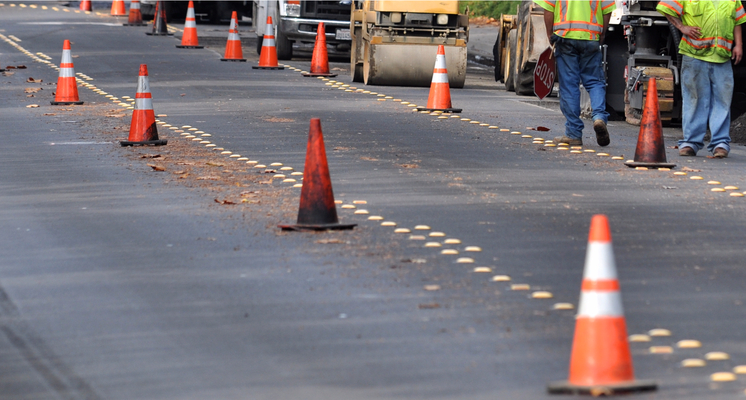LANSING — Didn’t they just fix this road?
It’s a common complaint from Michigan motorists when they encounter orange barrels in a familiar location.
The Michigan Department of Transportation is now trying to find out whether it is cost-effective to build better roads that will last longer.
Most Michigan freeways are built for a 20-year life. In pilot projects this year and next, MDOT will build stretches of road expected to last 30 and 50 years, respectively.
Not only should they last longer, the experimental stretches of road built in Genesee and Kent counties are expected to provide smoother rides and require less maintenance.
But they won’t come cheap.
“Can you build a longer-lasting road? Yes,” MDOT Director Kirk Steudle told the Senate Appropriations subcommittee on transportation last week. “Is it free? No.”
The pilot projects will be put out to bid, just like other jobs, so there’s no telling with certainty how much they will cost until the prices come in. But MDOT estimates a 30-year road might cost 50% to 100% more, and a 50-year road might cost 85% to 150% more, depending on whether they are rural roads or urban roads, spokesman Jeff Cranson said Friday. Urban roads typically cost more for a variety of reasons, including complex drainage issues, more utility lines to work around, and the need to build retaining walls because of intersecting freeways, he said.
The 30-year road will have at least 36 inches of sand and gravel to resist frost, up from 24 inches in the 20-year road. More materials poured to greater depths are the major reason for the higher costs.
The few miles of road stretches built as pilot projects — two built from asphalt and two from concrete — will be intensely monitored for their performance and durability over the next several years as MDOT tries to figure out whether the extra money is well spent.
The requirement to look at longer-lasting roads emerged from the $1.2-billion road funding deal in 2015, which hiked gasoline taxes and vehicle registration fees, starting this year.
John Boillat, 66, who lives north of Byron near Howell and drives I-96 each day to his job repairing machines at a Ford Motor Co. plant in Livonia, said he’s not happy about the tax and registration fee increases and he doesn’t have high expectations about the pilot projects.
Michigan should be able to build better roads without spending more money because other states with similar climates, such as Ohio, Wisconsin, and Minnesota, are able to do it, Boillat said. He thinks the key is building elevated roads designed so the water drains off them quickly.
The pilot projects are “another cost that I don’t think the taxpayer needs to have,” Boillat said. “It’s not like we started building roads yesterday.” And which of the current politicians and highway officials will be around in 20 or 30 years to be held accountable if the pilots are not a success? he asked.
Cranson said the longer-life roads are built for ideal drainage and improved frost resistance.
“Considerations were given to the chances that Michigan could very well experience a few cycles of very extreme weather events,” including “very wet and cold winters,” he said. “With these colder and wetter-than-normal weather events comes the likelihood that the heavy trucks could drive the frost deeper and deeper into the roadway.”
The elevation of the roadway relative to the accompanying ditches, and assuring water from the ditches can’t flow back onto the roadway, is another important design consideration, he said.
READ MORE AT: http://www.freep.com/story/news/local/michigan/2017/03/04/michigan-roads-construction-quality/98683742/

